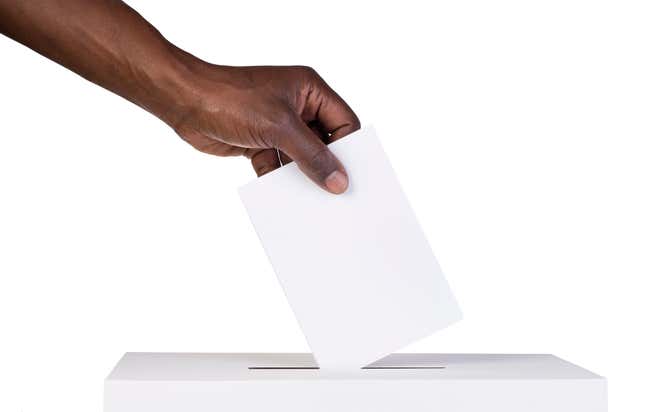
In November, people in the state of Florida voted “yes” on Amendment 4—an initiative that would restore voting rights to more than one million former felons.
The amendment would restore the rights of those with felony convictions who had completed their sentences—including prison terms, parole and probation. The only exclusion was those who had been convicted of felony sexual offenses; they would be required to individually petition the state to regain their right to vote.
As The Root’s Angela Helm previously reported:
Prior to this, Florida’s process was far too onerous for convicted felons, according to criminal justice advocates. It required those who served time for felony convictions to wait at least five years after completing their sentence before they could file a request with a committee of elected officials that includes Scott, who had the individual power to approve or dismiss any appeal. Pacific Standard reports that even those who completed this arduous processfaced a backlog of 11,000 cases and “a battery of extremely personal questions.”
Florida, in particular, had a particularly high number of ex-offenders who were disenfranchised. Prior to Tuesday’s vote, 1.6 million Florida residents were unable to vote, which is 10 percent of the state’s total adult population and 20 percent of all black residents.
It should have come as a shock to no one when Republicans on Florida’s House Criminal Justice Committee introduced a bill in March that made it that much more difficult for former felons to have their voting rights restored. The bill requires former felons to not only complete their sentences, but to also have met all “financial obligations” related to their sentence, including any court fines, fees or civil judgments before their voting rights can be restored.
That bill passed along party lines in the Florida House on Wednesday with a 71-45 vote, according to the Miami Herald.
The Florida Senate has a similar bill that only requires restitution to be paid before voting rights are restored. It takes into consideration that most court fees and fines are often converted to civil liens, and therefore does not require those to be paid prior to the restoration of voting rights.
No matter which form of the bill ultimately becomes the law, you know who loses? The ex-felons trying to get their lives back. As the Herald notes, most of them owe so much money in fines and fees and restitution that they may never be able to pay it all off in order to have their voting rights restored.
Then there is the issue of Florida not even having a system in place to track whether or not someone has paid their restitution and the cost to set something like that up could be millions of dollars.
For $2 million, the Florida Senate has proposed hiring more people to work on the Florida Commission on Offender Review to help evaluate voter registration applications from former felons. They would then report that information to local supervisors of elections.
The part that sticks out in all of this?
Amendment 4 never made any mention of court fines, fees or restitution. Because the wording on the amendment says “all terms of their sentence including parole or probation,” Republicans used that wording to interpret that the financial obligations are included in completing the sentence.
Sounds like a new poll tax to me. What about you?

